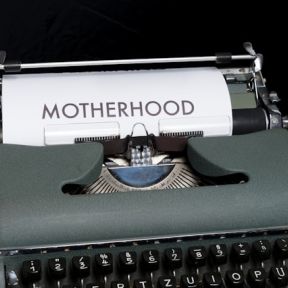Navigating Sibling Relationships
Sibling relationships are important. While friendships come and go, you’re stuck with your siblings. This relationship is oftentimes one of the longest relationships in a person’s life. You can rarely get away with being fake or phony when with siblings. You grow up in the same environment, share the same parents, and share common memories and similar experiences. You are who you are because of this shared history, which makes the relationship unique and invaluable.
On This Page

The presence of siblings in the home affects a child's development, and it does not have to do with birth order. Having a sibling, for example, affects a child’s social skills, and a child with a sister or brother can often be more agreeable and sympathetic. Some research indicates that having a sibling in adulthood helps alleviate depression and anxiety. People are altogether happier when they have positive sibling relationships.
When a new baby arrives, don’t be shocked if a child regresses in behavior. This can include infantile conduct such as whining, kicking, screaming, hitting, even bedwetting. Jealousy is normal. Who wouldn’t feel that way? All your attention has landed on the new baby. Psychologists advise that you involve your older child as much as possible; let them help care for the baby. Of course, the help that they provide depends on their age and ability.
It is important to set aside time with the older child or children; every child needs such one-on-one time. Encourage older children to talk about their feelings and conflicts and assure them that they can have these feelings and still be a wonderful older sibling. If they express negative feelings, acknowledge that. Never deny or discount your child’s feelings.
Sibling relationships work best when each member appreciates the similarities between them, and they also respectfully note their differences. If they do experience discord, it is eventually resolved, as opposed to a wound that is maintained as part of the family narrative. Having a shared history gives siblings a connection that helps them navigate life, and it’s a bonus when they enjoy each other’s company.

Many theories have been proposed about the influence of siblings, and stereotypes are aplenty. The firstborn child is supposedly more conscientious and successful; the middle child is presumably excluded and embittered; the youngest is expected to be more social and persuasive. However, these characteristics don’t seem to hold up in research. Various studies have found that birth order has no bearing on a person’s predisposition.
Research that appeared in the Proceedings of the National Academy of Sciences, looked at a number of studies and found no association of birth order on personality. The firstborn child is not necessarily the achiever, the middle born is not necessarily the peacemaker, and the last born is not necessarily the manipulator.
There's evidence that firstborns have slightly higher IQs than their younger siblings. Some researchers attribute this to parental age at the time of birth, while others contend that firstborns received more resources and attention from parents during important developmental stages. Other than this finding, there is no consistent evidence that firstborns, middle children, or last-borns reliably carry any particular traits whatsoever.
One findings documented by researchers is that children born first tend to do better in school throughout childhood. This does not mean that they outshine their siblings in all realms throughout life. But because firstborn children get more attention from parents, they may be more motivated to fulfill parents’ expectations and therefore become more responsible. It is also possible that they may possess slightly higher IQs (see above), though most researchers think the IQ difference is so minimal that it does not translate into any real world gains.
Parents do favor first- and last-born children over middle children. This happens in part because middle children will not likely be the only child living at home — at some point first-borns and last-borns will have their parents all to themselves. Overall, first-borns get the most privileges and last-borns receive the most affection from parents.
Younger siblings may want to find a place of their own within the family, and may therefore be less conforming to what their parents want. This may be why they appear more rebellious and open to novel experiences. The youngest child may also feel less capable and experienced, and may be more pampered by family members. As a result, the youngest may develop social skills that will get other people to do things for them, thus contributing to their image as charming and popular.

Discord between siblings is normal. The notion of the cheery harmonious family that never fights is a misnomer. Conflict can come in many forms, 85 percent of siblings are verbally aggressive, 74 percent push and shove, and 40 percent are physically aggressive, which can include kicking, punching, and biting. Among adult siblings, studies show that roughly half speak to or see one another about once a month; the other half communicate less frequently or not at all, and they are more likely to engage in competition and rivalry. The culture idealizes the potential of loving sibling relationships—but the reality often falls short.
Before children are a year old, they exhibit a sophisticated social understanding. They are sensitive to differences in their parents’ affection, warmth, pride, attention, and discipline. They are attuned to the emotional exchanges going on around them. They are quick to pick up differential treatment by parents. They are attuned to whether the treatment they or their siblings get is fair or unfair.
Rivalry may start as early as age 3. At this age, children have a sophisticated grasp of how to use social rules. They can evaluate themselves in relation to their siblings and possess the developmental skills necessary to adapt to frustrating circumstances and relationships in the family. They may even have the drive to adapt and get along with a sibling whose goals and interests may be different from their own.
The so-called replacement child is one who is conceived to take the place of a deceased sibling. Over time, the definition has been expanded to include many other scenarios. These include an older child whose role within the family may be shifted to “take over” for a deceased sibling because of parental pressure and, or, survivor guilt; a child who is made to feel responsible for a sibling who is handicapped, challenged, or incapacitated from birth or becomes so during the course of their life; and a child who is adopted to take the place of a biological child the parents were unable to have.
Child psychiatrist Richard Hoetzel, M.D., advises parents to learn the root cause of a disagreement or fight. What started the brawl? Is one child jealous of the other? Did someone feel left out or have her feelings hurt by another member of the family? Sometimes, children who are angry at a parent wind up taking it out on a sibling.
For most parents, sibling conflict is just an additional and unnecessary source of family stress. Yet, fighting is not a sign of siblings not getting along. It is how they get along, using conflict to test their power, establish differences, and vent emotions. It's how they manage their love-hate relationship, each side of which is compelling in its own way. In healthy sibling rivalries, children can be both good companions and good opponents with each other. In unhealthy rivalries, there is only enmity.

A large proportion of parents consistently favor one child over another. This favoritism can manifest in different ways: more time spent with one child, more affection given, more privileges, less discipline, or, the worst scenarios, less abuse. Some favoritism is fair, the arrival of a newborn or caring for an ill or disabled sibling. Some favoritism is unfair, in patriarchal cultures, parents simply favor boys over girls, for example. Favoritism is a common reason for sibling resentment. A child who feels unfavored will direct his anger toward his sibling, not to the parent showing favoritism.
A child's personality and behavior can affect how parents treat them. Parents behave more affectionately toward children who are pleasant and affectionate, and they direct more discipline toward children who act out or engage in unruly or deviant behavior. Because girls tend to be warmer and less aggressive than boys, parents are more likely to favor daughters over sons, though this is not the case in patriarchal cultures.
Favoritism is also more likely when parents are under stress; this can include everything from marital problems to financial difficulties. Parents may be unable to inhibit their true feelings or monitor their behavior to be sure they are being fair to all children. Some researchers argue that when emotional or material resources are limited, parents will favor children who have the most potential to thrive and reproduce.
Children who are consistently held in disfavor are more depressed, more aggressive, suffer lower self-esteem, and don’t necessarily reach their academic potential. Favored children also suffer, the unfair treatment poisons everyone. The unfavored sibling ends up resenting the favored one, sometimes well into adulthood.














